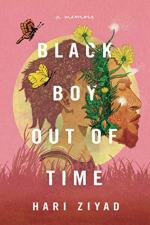
|
| Name: _________________________ | Period: ___________________ |
This quiz consists of 5 multiple choice and 5 short answer questions through Canto III: Free Chapter 14: Chapter - Chapter 16: A Prayer for Freedom.
Multiple Choice Questions
1. In Canto I: Black, "Chapter 1: Carceral Dissonance," why does Hari have reservations about therapy?
(a) He believes therapy is too expensive.
(b) He feels it will not address systemic issues.
(c) He thinks therapy is only for weak people.
(d) He is afraid of opening up to a therapist.
2. In Canto II: Queer, "Chapter 9: Representation Matters?", how does the media portray the case of El-Amin and its significance?
(a) The media frames El-Amin's actions in a hateful and criminalizing manner.
(b) The media focuses on building a diverse narrative to appeal to wider audiences.
(c) The media accurately represents El-Amin's queerness and his act of self-defense.
(d) The media corrects the initial coverage to reflect the truth of the incident.
3. In the "Epilogue: A Prayer for my Grandmother," what is Hari's perspective on visibility and representation?
(a) He believes that visibility will automatically change the minds of those with harmful views.
(b) He believes that representation alone will lead to liberation.
(c) He questions the effectiveness of representation in dismantling systemic oppression.
(d) He thinks that visibility is essential for all marginalized communities.
4. In Canto II: Queer, "Chapter 11: My Gender is Black," what does Hari observe about the people in his neighborhood's attitude toward pit bulls like Khia?
(a) They are generally fearful and avoid them.
(b) They have a positive and affectionate attitude.
(c) They are judgmental and critical of pit bulls.
(d) They are indifferent and don ot pay much attention.
5. In Canto I: Black, "Chapter 3: Nowalater," what term does Hari use to describe the act of reducing Black children to simplified, often negative narratives?
(a) Tokenism.
(b) Misrepresentation.
(c) Misafropedia.
(d) Stereotyping.
Short Answer Questions
1. In Canto II: Queer, "Chapter 8: A Prayer for Another World," what contributes to Hari's current sense of isolation?
2. What is Hari's main concern regarding Cloud's behavior in Black spaces?
3. In Canto II: Queer, "Chapter 6: A Prayer for Limitless," how does Hari describe his approach to spirituality and religion?
4. What realization does Hari have about his gender identity?
5. In Canto III: Free, "Chapter 15: Trigger Warning," what is Hari's view on the term "victim" (193) in the context of sexual violence?
|
This section contains 507 words (approx. 2 pages at 300 words per page) |

|




